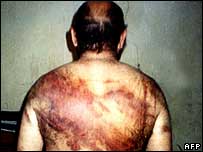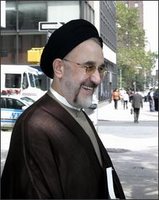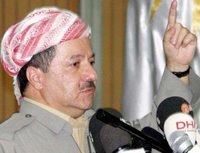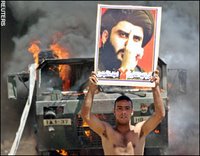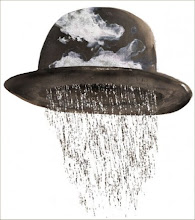According to a major United Arab Emirates (UAE) daily, Sharjah-based Gulf Today:
A sweeping majority of the insurgents in Iraq are waging the guerrilla war against the United States and allied forces to serve their interests on the domestic Iraqi scene. They have no interest in pursuing an anti-US armed offensive outside Iraq.
Most of them are Iraqi Sunnis who fear that their interests would be totally undermined by the Shiite-dominated government. They are seeking to realise concrete, local political goals and are not running a terrorism campaign against the US.
The paper expressed its hope the US would listen closely to the message that came from Monday's meeting in Jeddah attended by nine Middle Eastern countries. The worsening crisis in Iraq, the paper notes, does not bode well for the region because Iraqi sectarian and ethnic tensions could spill over the country's neighbours.
Saudi Interior Minister Prince Nayef Bin Abdul Aziz put the finger on the pulse when he expressed fear that
the wise could fall in the traps of the ignorant, in which case Iraq, its unity and people would be victims.
The dangers of such a situation, God forbid, are not a jeopardy to Iraq alone, but they will have an impact on the security of the international community and (Iraq's) neighbours.
The Saudi fear was echoed by Iranian Interior Minister Mostafa Pourmohammadi and his Turkish counterpart Abdulkadir Aksu.
According to the paper, the main item in the agenda for the Jeddah meeting was ways of bolstering Iraqi efforts to improve security. Interior ministers from Egypt, Bahrain, Iraq and its neighbours -- Saudi Arabia, Syria, Iran, Jordan, Turkey, Kuwait -- reaffirmed their resolve to prevent foreign fighters entering Iraq through neighbouring countries.
Gulf Today observed:
Foreign fighters sneaking into Iraq through its porous borders account for only a small segment of the raging insurgency there. The insurgents of Iraq are mostly Iraqis who have a local agenda, only a small percentage of them are the so-called "international jihdists" -- like followers of Al Qaeda and some obscure groups."
A sweeping majority of the insurgents in Iraq are waging the guerrilla war against the US and allied forces to serve their interests on the domestic Iraqi scene.
This is the key fact that Bush and his aides conveniently sidestep when they affirm that insurgents in Iraq will not leave the US alone and therefore the US has to maintain its military presence in Iraq as long as it takes for Washington to satisfy for itself that it has eliminated the "security threat" that it perceives.
It follows that the insurgency would continue to grow in view of the US presence in Iraq and this in turn points to the danger that was highlighted at the Jeddah meeting, said the paper.
It concluded that regional countries and the rest of the international community know well that the US would not be able to successfully fight off the insurgency through military means. Instead of continuing to justify its military presence and aggressive policy in Iraq, Washington should be seriously looking at various options that would contain the crisis to within the borders of Iraq first and set the ground for a compromise among the various Iraqi communities.
As reported by
Indian Muslims Info
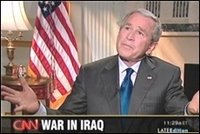
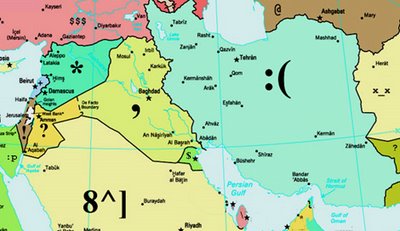 Wonkette
Wonkette Wonkette
Wonkette